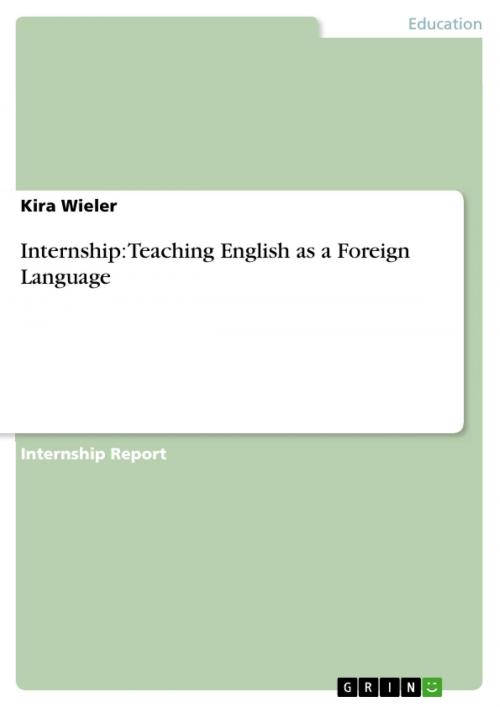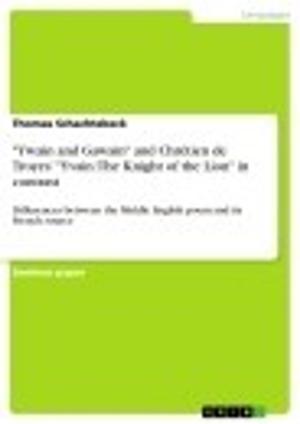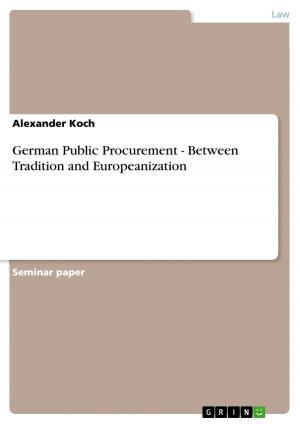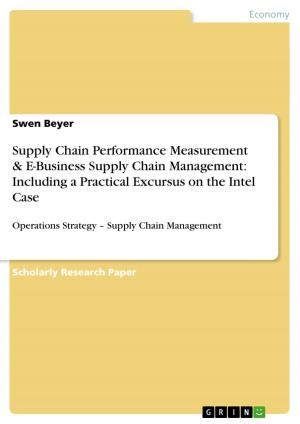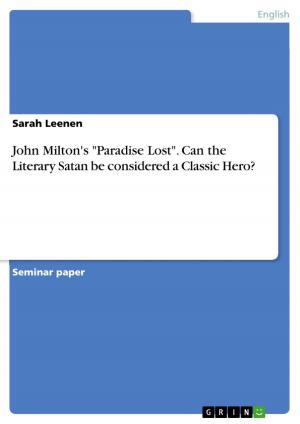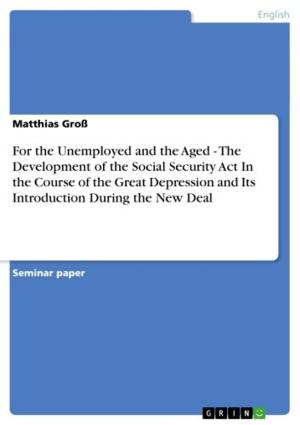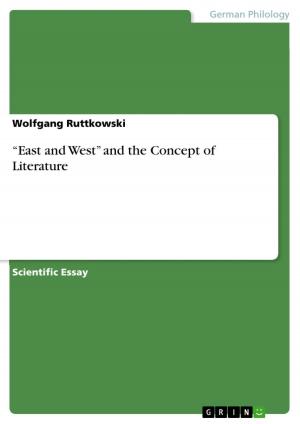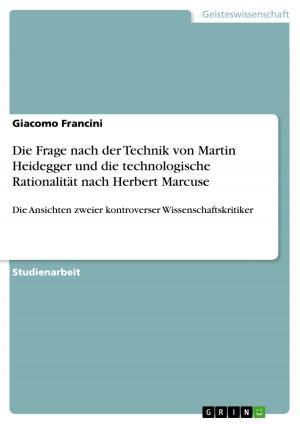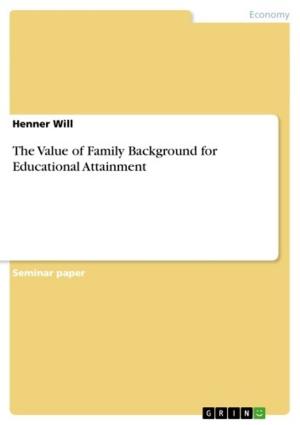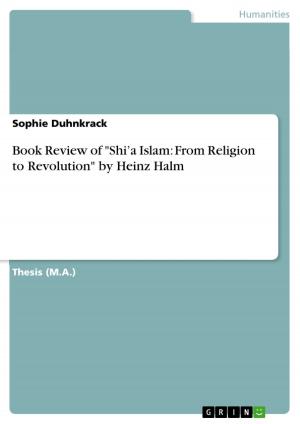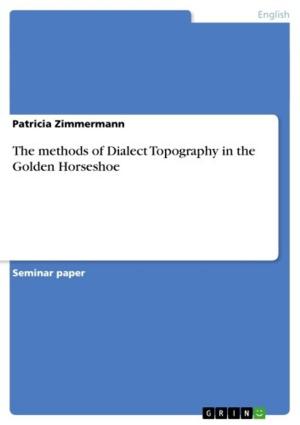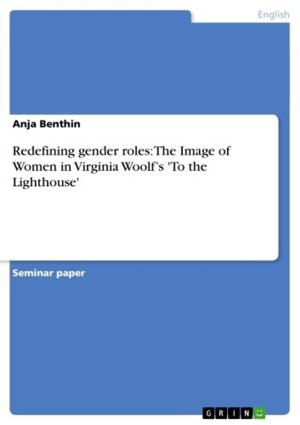Internship: Teaching English as a Foreign Language
Nonfiction, Reference & Language, Study Aids, ESL, Foreign Languages| Author: | Kira Wieler | ISBN: | 9783656113027 |
| Publisher: | GRIN Publishing | Publication: | January 30, 2012 |
| Imprint: | GRIN Publishing | Language: | English |
| Author: | Kira Wieler |
| ISBN: | 9783656113027 |
| Publisher: | GRIN Publishing |
| Publication: | January 30, 2012 |
| Imprint: | GRIN Publishing |
| Language: | English |
Internship Report from the year 2010 in the subject English - Pedagogy, Didactics, Literature Studies, grade: 2,0, University of Wuppertal, course: Teaching English as a Foreign Language, language: English, abstract: At the beginning of the internship I decided to observe the discourse of classroom processes. Discourse concerns the use of language and is important for teaching English as a foreign language: 'discourse as real language use is the target of teaching' (Cameron 2001: 37). It occurs in the classroom, when teacher and learner interact. Therefore I chose discourse as my observation task. I observed that children use a mixture of the first language and the foreign language if necessary. It is difficult for the children to learn a completely new language and so they often only have a partial understanding of the foreign language. However, this does not stop them from interacting. They seek sense and work out a meaning (Cameron 2001: 38). If children 'want to share understanding with other people through the foreign language, they will search their previous language-using experience for ways to act in the foreign language' (Cameron 2001: 39).
Internship Report from the year 2010 in the subject English - Pedagogy, Didactics, Literature Studies, grade: 2,0, University of Wuppertal, course: Teaching English as a Foreign Language, language: English, abstract: At the beginning of the internship I decided to observe the discourse of classroom processes. Discourse concerns the use of language and is important for teaching English as a foreign language: 'discourse as real language use is the target of teaching' (Cameron 2001: 37). It occurs in the classroom, when teacher and learner interact. Therefore I chose discourse as my observation task. I observed that children use a mixture of the first language and the foreign language if necessary. It is difficult for the children to learn a completely new language and so they often only have a partial understanding of the foreign language. However, this does not stop them from interacting. They seek sense and work out a meaning (Cameron 2001: 38). If children 'want to share understanding with other people through the foreign language, they will search their previous language-using experience for ways to act in the foreign language' (Cameron 2001: 39).
